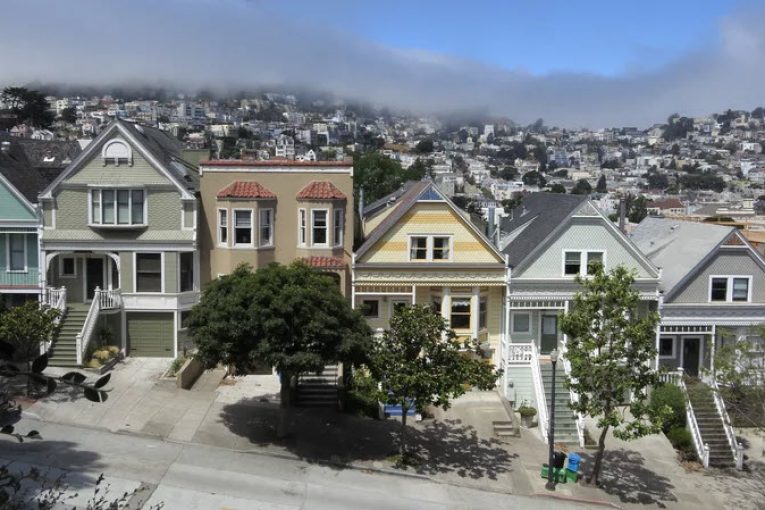
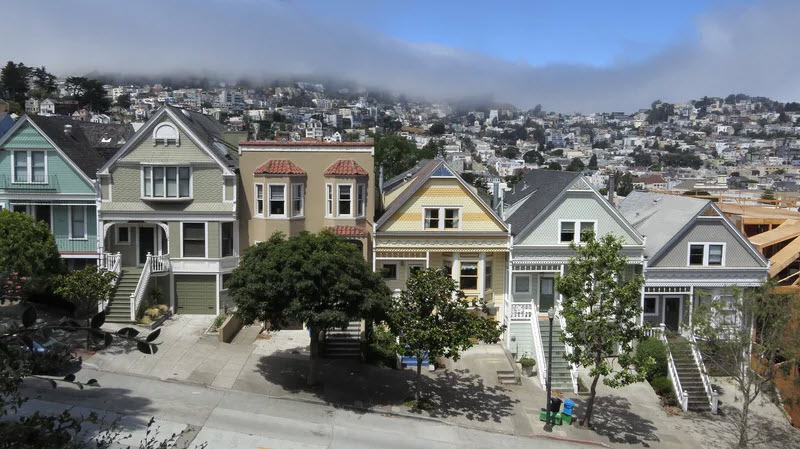
By David M. Greenwald
Executive Editor
The headline jumps out at you – 56 percent of respondents of a poll commissioned by Joint Venture Silicon Valley say they are likely to leave the region over the next few years. That marks about a nine point uptick from 2020 when the same question was posed in a pre-pandemic study. But when you drill down, there  is angst over the pandemic, but this is really all about housing—housing, housing, housing.
is angst over the pandemic, but this is really all about housing—housing, housing, housing.
“It’s housing, stupid,” said Russell Hancock, CEO of JVSV during a community meeting on Tuesday, riffing on the iconic James Carville, 1992 campaign slogan.
The poll was conducted with 1600 respondents in five counties: Alameda, Contra Costa, San Francisco, San Mateo and Santa Clara counties.
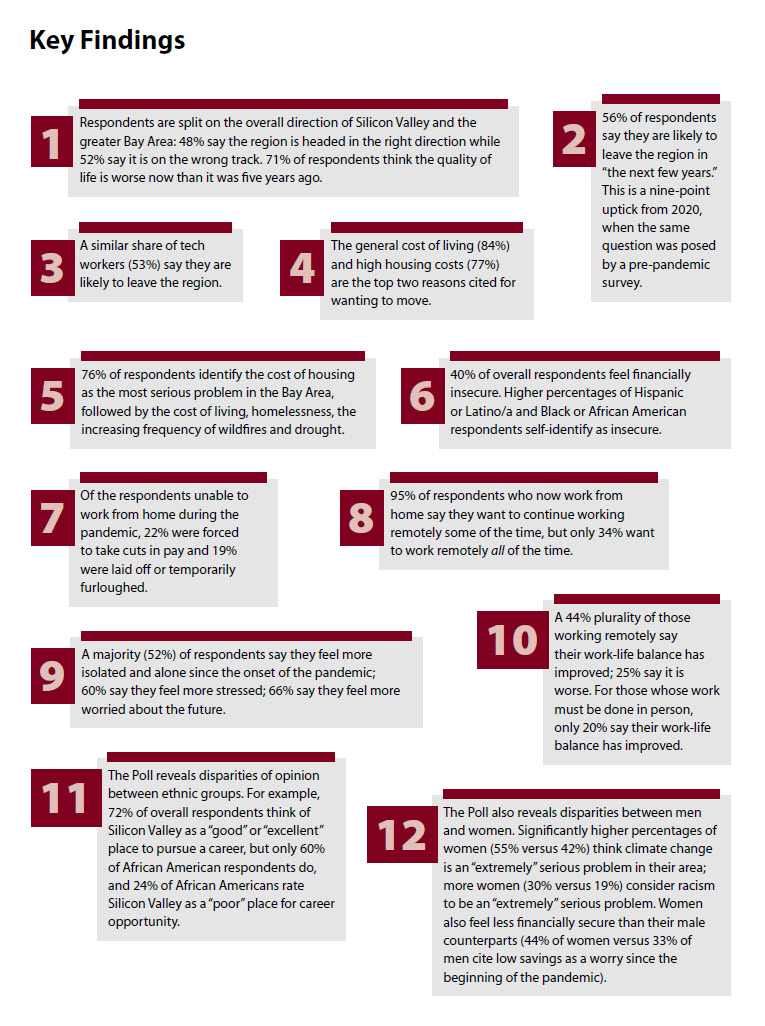
They got a reasonably representative political breakdown by party—about 1000 Democrats, 300 Republicans and Decline To State.
Hancock pointed out that one remarkable piece of agreement here was that, across income and educational levels, the community largely agreed on the challenges.
“This is actually a uniform result. About 70 percent of us think that the Bay Area is getting worse,” he said. “That’s a sobering finding.”
The one area where there is some skew is on the issue—“do you think that in the last five years the quality of life in the Bay Area has gotten better, gotten worse, or stayed the same”—you see 92 percent of Republicans with some variation of getting worse, with 59 percent saying much worse. Democrats also think things have gotten worse, but with about 60 percent and only 17 percent saying much worse.
Everyone else pretty much across the board—age, income, and ethnicity—all agree in the 70 percent or so range.
When we drill down on a couple of measures here—this is all about housing.

The top three are all related to housing—the cost of housing, cost of living and homelessness.
Seventy-six percent say they view cost of housing as an extremely serious problem and almost everyone agrees is it a problem. The cost of living is right behind it, at 68 percent saying extremely serious and about 90 percent believing it is extremely or serious. Homelessness is at right about that.
If you drill down into the second tier, you see a lot of concerns about wildfires, drought and water—all of that related of course to climate change.
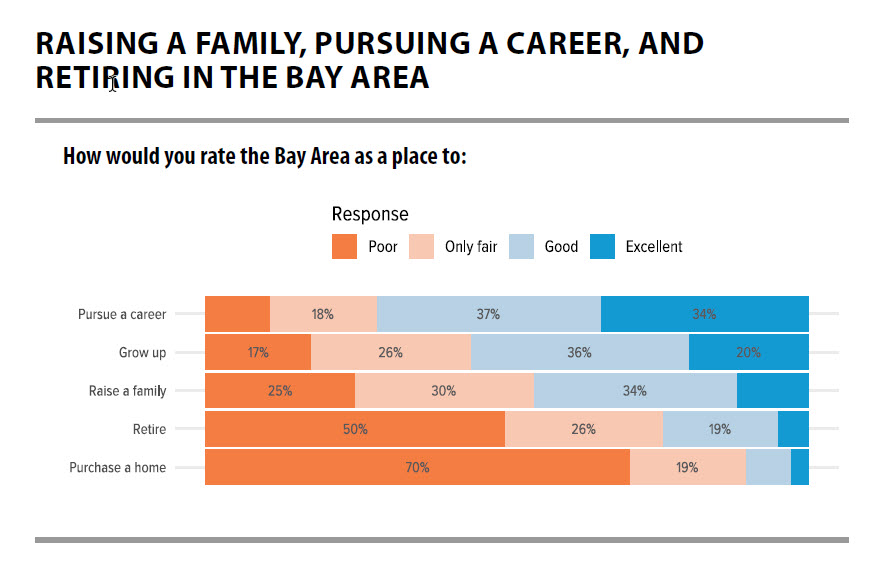 Here is another key indicator. The vast majority (71 percent) say it is a good and excellent place to pursue a career. This is particularly true for those with a bachelor’s degree or higher.
Here is another key indicator. The vast majority (71 percent) say it is a good and excellent place to pursue a career. This is particularly true for those with a bachelor’s degree or higher.
But as you drill down—it’s not bad to grow up in , fewer think it’s a good place at this point to raise a family, fewer still to retire and almost no one thinks it’s a good place to buy a home.
“This of course correlates with home prices, no surprise, everybody responding to the poll says this actually a terrible place to buy a house,” Hancock said.
One more.
When they asked about people’s personal financial situation, 45 percent feel like it’s actually getting better versus 26 percent who say they are worse off. And future prospects are also relatively good with 40 percent saying they are good, versus 30 percent who say their future prospects are dim.
When asked then why they are thinking of moving away from the Bay Area…
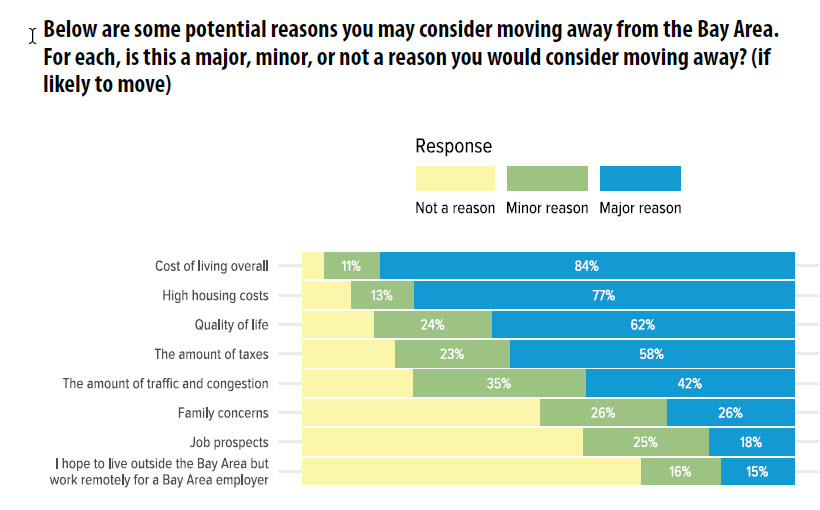
Overall cost of living and high housing costs are the main drivers.
Looking at demographic splits in that: Not surprisingly, the youngest cohort is most likely to leave but it’s not the huge split that you might expect. Sixty-four percent of the 18 to 34 versus 54 percent of 35 to 49, and one group much less likely to go are those 65 and older at just 41 percent—that makes sense.
A little surprised the own/rent split is relatively small—64 percent of renters to 48 percent of owners. The split is there, but it is not a huge chasm.
And it’s pretty consistent across income levels—59 percent for those under $50,000, 59 percent for those $100 to $250K. It does drop when you get over $250K to around 46 percent.
For me then, the key stat is not necessarily that people are thinking about moving from the Bay Area. Rather it is the stat on the cost of housing—even among those who own homes—and the divide between those who think the Bay Area is a good place to have a career versus raise a family.
For the most part we know from other surveys that a lot of the people who are fleeing the Silicon Valley and the Bay Area are not leaving the state, they are simply moving elsewhere in the state where the housing market is less heated.
There was another survey strand that I found quite interesting. People are looking to leave the Bay Area, and they are doing so for housing costs mainly. A lot of them like remote working, although only one-third would consider working all the time remotely, but only about 15 percent are hoping to live outside of the Bay Area and work remotely for a Bay Area employer.
None of this is hugely surprising.
But the take away, at least for me, is that (a) the housing crisis is a key factor now in the future of this state, (b) if we can’t fix the housing crisis, we will radically alter our region, and (c) we need to address housing supply in order to bring the cost of living in California under control.






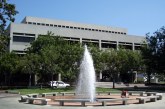
“But the take away, at least for me, is that…we need to address housing supply in order to bring the cost of living in California under control.”
Yet you still support limit lines the block on the easiest places to add housing.
By definition, Davis is the hardest, not the easiest place to add housing.
Only because of the limit line.
Wrong! This is where you have all of this backwards. The limit line is a function of the housing environment in Davis, not the cause. There is a reason why 80-plus percent of the voter voted for it. There is a reason why it is hard to build and expensive to build even infill and projects that don’t have Measure J requirements in Davis. There is a reason why for a time, every single project ended up in court. There is a reason why Wildhorse and Target went to the ballot even when they weren’t required by Measure J. There is a reason why the county approved housing at Mace Ranch on the edge of town, pre-Measure J.
So much for speaking truth to power.
I’ll see your Wrong! and raise you a Wrong! and call your Wrong! Wrong!
Yeah, because most renters don’t vote, and most owners vote and have the primary interest of their main asset(s) property stabilize and grow in value by limiting local supply in a town with huge demand, thus increasing both rent and property values relative to if Davis sprawled outward. This is mixed with a handful of old school Davisites who actually voted for measure Spooky! because it greatly slows the spread of Davis asphalt over adjacent farmland.
The rest of the reasons U list are tiny dancers. Count the headlights on the highway.
As for Silicon Valley, the prices of rent and property are ultra-high there because there is ultra-high demand. Despite what people “say” in a poll, the real poll is property and rental values. I track these in Silicon Valley. Property value increased over the pandemic. Rental values dropped precipitously (to only outrageously high, down from obscene) at the beginning of the pandemic, and have fully recovered now. The main reasons people I know in the Bay Area cite are: the tolerance of meth and opiate addiction (known to some under the code-name ‘homelessness’), tolerance of petty crime, and now-recovered — and in some-cases increased — traffic levels.
Remember, the main reason given, high costs, is itself a reflection of demand. There is a solution if we want to look like Houston: destroy all zoning and local control laws, and let the developers have free reign. Install Weiner as Governor and that’s what you’ll get. And that’s when I move to Serbia.
You’re answering the “why” rather than the more important factor which is that this is how the community votes which has created the limit line as Ron Glick calls it.
It’s not about ‘why’, it’s about the more important factor, and that is me insulting our community.
David
You’re wrong. Your reasoning is circular–its difficult to build here because we’ve made a rule that makes it difficult to build here. Ron G has identified the illogic in that reasoning. The line limit is not a function of the housing environment–it’s a function of established homeowners attitudes towards the addition of housing in Davis. That’s cultural, not physical.
Davis is one of the easiest places to build from a physical perspective for a variety of reasons. That differs from the Bay Area where the easiest places have been built out and the transportation system is highly congested. There is a singular reason that hinders housing here, and Ron G is correct–its the arbitrary regulatory requirement from Measure J/R/D. If state law changes to override that, then housing becomes much easier to build here.
The question is not that it’s harder to build in Davis. The question is whether there is evidence that that has led to more homeless and the problem with that contention is that Woodland with a smaller population has substantially more (25 percent) homeless people. It’s hard to argue there is an empirical relationship between Measure J and homelessness when Davis has fewer homeless by far.
I’m not sure what the point of this posting is. Yes it’s expensive to live in the bay area. When it gets too expensive for them, people move out. Water is wet, the sky is blue…..
Couldn’t you flip the argument and say that Bay Area employers haven’t kept wages up with the cost of living? But the knee jerk response is that we need to provide more housing! Not to just let the normal economic pressures force employers to pay workers more.
It’s another “smackdown”.
Yeap – nothing wrong with that, actually.
They don’t want to.
Sometimes, they leave for place where they can pay their employees less. Employees then follow, and drive up the cost of housing there. It’s occurring in Austin (and other places), now. Housing prices are rising much faster there, than anywhere else.
Nothing wrong with that, either. In that sense, the capitalistic system kind of works. But it does (sometimes) force out those who were there, previously. Or, at least encourages them to cash in and leave.
That’s why many people in Davis and the region came from the Bay Area in the first place, and this trend has accelerated in recent years.
Davis has both the opportunity and the problem now.
Maybe we should be more concerned about the cost of housing in “Franklin”, Tennessee? Median over $1 million.
Never even heard of the place.
https://www.msn.com/en-us/money/realestate/the-ugly-truth-about-franklin-s-affordable-housing-crisis-opinion/ar-AAPnMCl
You can worry about that. I’m looking at the impact on our region.
“Couldn’t you flip the argument and say that Bay Area employers haven’t kept wages up with the cost of living? ”
In this case $170,000 a year is not enough. I guess I’m not sure of what the point of your posting is.
It is what it is…is the point of my post. Just like $20K isn’t enough in Davis. Every place has it’s cost of living. More people, economic growth…restrictive growth policies…all these things factor into the cost of living. Is there a problem if $170K a year isn’t enough to live on in the Bay Area? If it is, then bay area employers should pay their workers more. If not people are going to leave…isn’t that how it’s supposed to work? I guess the underlying question is: Is it such a bad thing for people to leave an area? If economic growth and stability is dependent on population growth then I guess it is. But then I’d argue you have a bigger problem because that model becomes less and less stable as it grows (becoming relatively unsustainable eventually).
Is it bad? Usually it’s not a good thing since when there is a trend of outmigration it indicates that there is a problem. In this the problem is almost exclusively cost of living triggered by housing costs.
I view it as a warning to Davis – but also an opportunity for Davis.
Again, what is this “problem”. WHY is it a problem?
I view it like the weather. It is what it is. Economy and population growth goes up in a region. Cost of living of goes up.
In the Bay Area’s case…unless there’s some major government intervention (like the government taking over large swaths of land and building MASSIVE public housing)…the Bay Area can’t build it’s way into affordability.
I agree that it could be an opportunity for Davis. But the bigger picture question (and I’m channeling Ron here): what is the goal of economic and residential growth? Is there a limit? What defines that limit? I try to take a middle of the road view (and you know what they say about walking down the middle of the road…that’s where you get run over) that I support limited growth if it provides a strategic benefit to the community.
It would be like asking what’s wrong with climate change, I like warm weather…
In any case, I think the questions posed are reasonable. I agree with a middle of the road approach – the probably is that we have gotten so far from middle of the road both in Davis and regionally that modest changes look radically pro-development.
That’s absolutely nothing like discussing cost of living. Climate change negatively impacts just about everybody no matter where you go. Cost of living in an area? Move or make more money.
I don’t think you can realistically control cost of living without deflating economic growth. No one really wants to do that. So all you can do is strategically mitigate (to a limited degree) some things (like housing) that effect the cost of living. But otherwise it’s not really a “crisis”…it is what it is like the weather.
“I don’t think you can realistically control cost of living without deflating economic growth. ”
But you can lose population without deflating economic growth?
Bingo! And that’s the $64,000 question I’ve been alluding to! In theory you can to a point…which is why I advocate strategic and targeted housing solutions. That’s why I’d never say I’m pro development (ironic given that I’m a former developer) but I’m pro economic growth…or at least pro economic growth for economic stabilization or pro growth for the improvement of quality of life for a region. The really big questions come in the “quality of life” definition we choose to use….btw. I’d use that quality of life to mean for existing residents. But I think we do know that we can not sustain continuous economic growth for the sake of sustaining the economy. Otherwise we just continue to grow unchecked and unmanaged which will lead to problems in the community. The opposite of that is a no growth dogma which will throttle the community financially and leave it behind it’s neighbors politically. Once again, I’m trying to balance things by walking down the middle (and probably going to get run over pissing off people on both sides of the growth/no growth debate).
It does seem rather disingenuous for the interests that caused housing prices to rise to then turn-around and blame the community, rather than themselves.
Then again, maybe you can blame the communities for inviting “the wolf in the door” in the first place. And sometimes actively pursuing the wolf.
I don’t think they did blame the community.
Is that right?
https://www.davisvanguard.org/2021/10/commentary-chronicle-lays-the-smack-down-on-california-housing/#comment-456230
Usually originating from a young, white, relatively well-off YIMBY.
You are conflating the Chronicle editorial with the Silicon Valley poll.
There’s a difference in motivation? Again, the Chronicle comes out with this stuff almost as often as you do.
Let me know if you find out the answer to the question, below. Otherwise, the poll can be viewed as garbage.
And even if it was accurate, so what? (As more-eloquently worded by other commenters on this page.)
I saw a disclaimer on the Chronicle’s website today, noting something about a difference between their “editorials” vs. “news stories” (something like that). In any case, I had a good laugh.
Is it accurate? I think it accurately reflects how people feel right now. Do I think half the Bay Area is going to leave in the next few years? No.
I think there is an important question here that becomes a policy issue – if we are pricing people out of areas, does it matter? I would argue it does. I would argue that it is not healthy for Davis to become simply a city of wealthy, retired and students. That’s where we are headed which I why I spent an hour watching the meeting yesterday.
As I say again, I see this as a warning for Davis as well as an opportunity.
It reflects how respondents feel.
I don’t know what meeting you’re referring to, but you already have an opinion. Was this a meeting of like-minded folks?
Not sure what’s wrong with having wealthy (however you’re defining that) retired people. All housing eventually turns over, including that in Davis. Especially that which houses “retirees”, since they don’t really have that much time left. And some will leave Davis before their “final exit”, as well.
Also, are you claiming that no one living in Davis works?
Davis has a lot of “family housing”, including but not limited to Mace Ranch, Wildhorse, The Cannery, etc. Even Lake Alhambra, though they’re decidedly more-wealthy than most. Housing turns-over in Davis, as it does in all communities.
Should we list what’s for sale right now?
Despite the cost of housing, the Bay Area attracts plenty of newcomers, who frankly “outperform” the old-timers. There’s actually well-off families in San Francisco (but they usually end up leaving as a result of the public school system, if they’re not wealthy enough for private school).
Tried to add, how do you know what the age range or work status would be of those occupying new (additional) housing? Assuming that’s your goal.
And, would they stay that age forever?
Or, would you be counting on the new housing to then turn over, while simultaneously implying that existing housing doesn’t turn over?
Or, do you just advocate a never-ending Ponzi scheme, always trying to build additional housing for a particular age range and work status? With no evidence that this actually works? Or even criteria regarding what that actually means, in terms of price, size, etc.?
Wasn’t The Cannery intended to house families (and is, in fact primarily the type of housing that families are attracted to)?
How many did not respond? In other words, how many surveys were sent out? And, were they sent in a completely random manner (e.g. by address)?
Would respondents tend to be the ones most concerned about the issues presented in the poll?
I don’t know